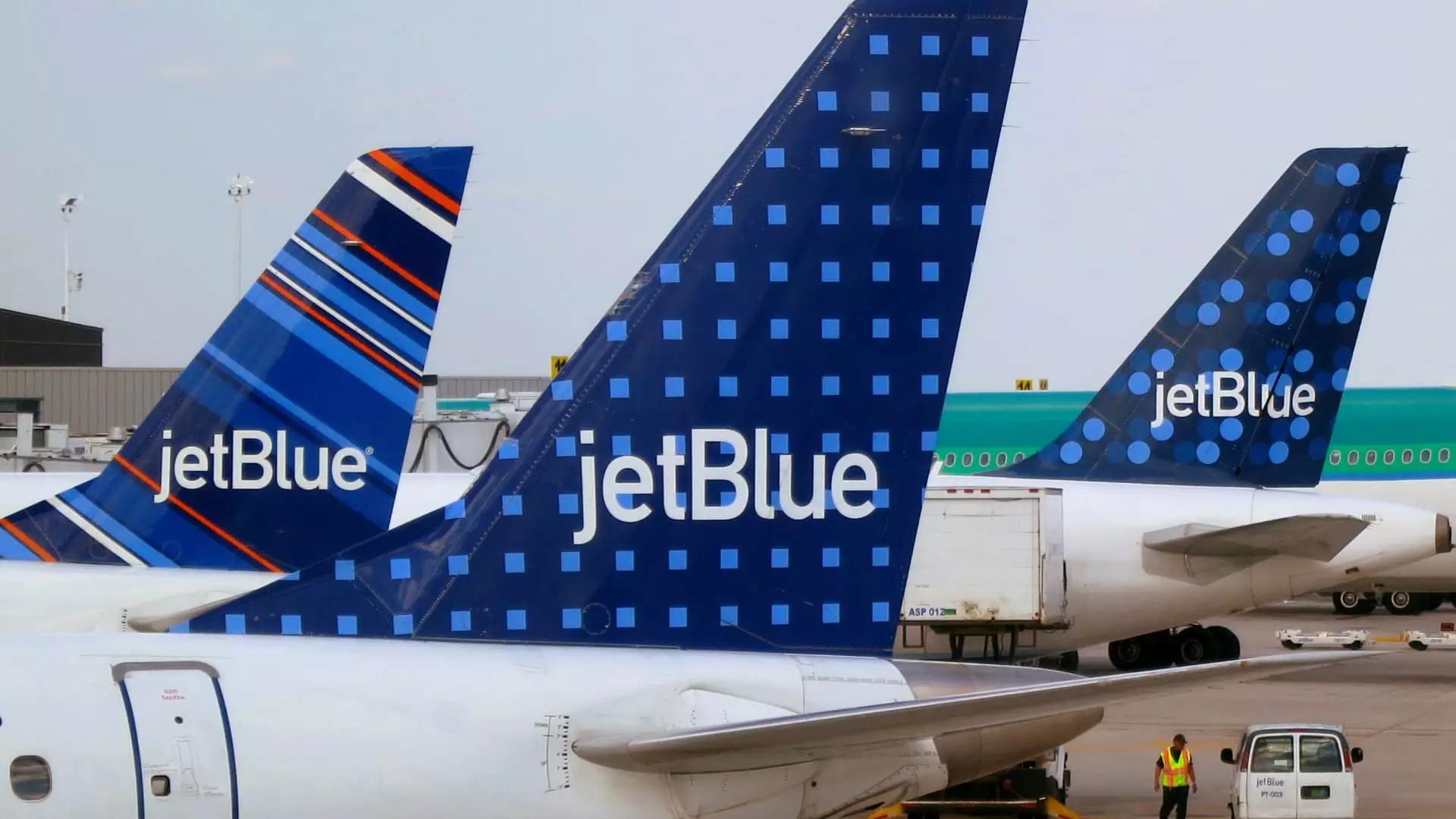The aviation industry is once again under scrutiny, this time following a significant penalty imposed on JetBlue Airways by the U.S. Department of Transportation (DOT). The $2 million fine represents an unprecedented action against an airline for what the DOT deems “chronically delayed flights.” This case serves as a pivotal moment, not just for JetBlue, but for the entire airline sector, as it highlights systemic issues related to operational delays.
According to the DOT, the infraction involved JetBlue’s handling of four specific routes that experienced extensive delays between June 2022 and November 2023. These routes included flights from John F. Kennedy International Airport (JFK) to Raleigh-Durham International Airport, as well as several routes linking Fort Lauderdale to Orlando and Windsor Locks, Connecticut. A troubling statistic reveals that JetBlue accounted for over 70% of disruptions on these routes, indicating a serious mismanagement issue.
The DOT defines chronic delays in rather stringent terms: if a flight is scheduled to operate at least ten times in a month and arrives late more than half the time, it qualifies for this designation. Notably, JetBlue was found guilty of failing to adjust its flight schedules to align with this standard, resulting in a significant number of frustrated travelers and compromised service reliability.
Transportation Secretary Pete Buttigieg’s remarks in a recent news release underscored the seriousness of the airline’s situation. He emphasized that airlines need to take responsibility for their operational failures, urging JetBlue and others in the industry to ensure that flight schedules are reflective of operational realities instead of optimistic projections. His statement placed JetBlue’s actions into a broader context, suggesting a potential shift in how regulatory bodies may govern airline schedules moving forward.
The response from the DOT is indicative of a changing landscape in air travel regulation. As travelers increasingly voice their frustrations regarding delays and cancellations, regulatory bodies feel compelled to step in. This could signify the beginning of more rigorous scrutiny and stricter penalties for airlines that repeatedly fail to provide reliable service.
In light of the penalty, JetBlue issued a statement expressing its belief that the situation cannot be entirely viewed through the lens of airline responsibility. The company pointed out systemic issues, such as the need for improved staffing of air traffic controllers and the modernization of air traffic control systems. JetBlue argues that accountability for operational efficiency should also involve the federal government, given its role in maintaining air traffic protocols.
JetBlue’s perspective is not unique, as executives from other major airlines, including Delta Air Lines and United Airlines, have echoed similar sentiments regarding air traffic control delays. This raises the question of how much influence governmental operations have on overall airline performance and what steps can be taken to address these issues collaboratively.
From early January to September 2024, JetBlue ranked poorly in terms of on-time arrivals, placing ninth out of ten U.S. airlines with a mere 71.3% on-time rate, a slight improvement from the previous year. Such statistics reveal a broader trend in an industry that has been plagued by delays and operational disruptions, particularly in congested airspace like that of New York. These chronic delays not only inconvenience passengers but also ripple through the entire transportation network, affecting layovers, connecting flights, and the overall travel experience.
As the DOT continues its investigation into other airlines for similar scheduling practices, the pressing question looms: will this lead to a meaningful change in how airlines manage their schedules? The forthcoming regulatory environment may very well depend on how effectively airlines can balance operational realities with customer expectations.
The recent fine imposed on JetBlue serves as a stark reminder of the challenges facing the airline industry. It calls for a comprehensive reevaluation of how flight schedules are developed and maintained, pointing towards the necessity of collaboration among airlines, regulatory bodies, and air traffic control authorities. As travelers continue to demand improved experiences, the industry must adapt to these expectations, ensuring that the skies remain accessible, efficient, and reliable for all.


Leave a Reply